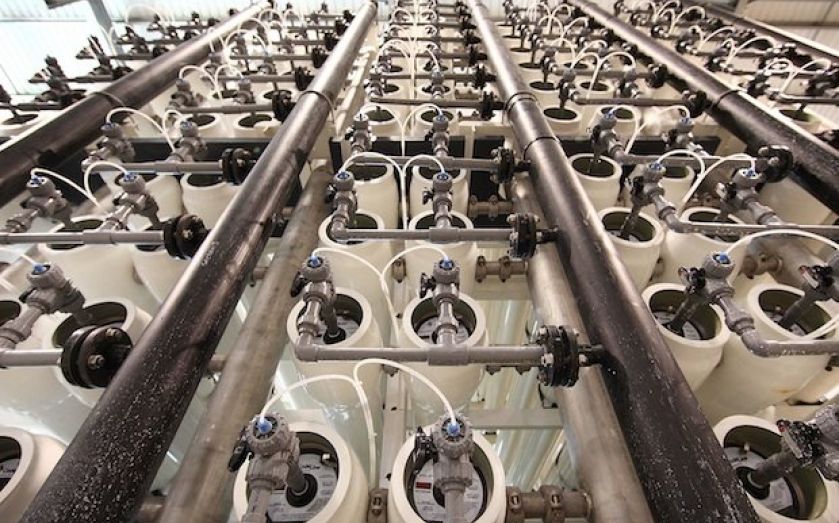We must stop using water bills as a limitless environmental credit card

WHILE all attention has been focused on rising energy bills, Britain’s water industry is facing its own troubles – with its recent history characterised by drought orders, hosepipe bans, and tariff hikes.
But the efficiency of the UK water supply is an issue that can no longer be ignored. There is new management at water regulator Ofwat, and it could be a crucial driver for change. But while it may be busy dealing with Thames Water’s claim for an 8 per cent price increase, or digesting proposals from Ed Miliband that he will force water companies to introduce social tariffs to help poorer families, Ofwat should be focusing on the fundamental barriers and counter-productive incentives that are choking water efficiency. How can it be done?
First, given the structure of the market (where companies have regional monopolies, based on boundaries fixed at privatisation in 1989), the regulation of water involves a careful balancing act between enabling companies to finance investment, and protecting customers from higher prices. It’s now time to tip the scales: the drive towards attaining ever-increasing water and environmental quality at an ever-increasing cost must come to an end.
The focus on environmental improvement has driven up costs for consumers and choked supply. This is because massive investment in achieving high quality drinking water and very high standards for the discharge of waste water have been financed by rising tariffs. But it should be possible to intensify the search for more cost-effective – and less capital intensive – methods.
Ministers have hitherto treated regulatory financing arrangements as an environmental credit card, with too little concern for those paying the bills. Corporate irresponsibility and ministerial over-ambition have come together over the Thames Tideway – a major new sewer in London that Thames Water claims will “tackle the problem of overflows from the capital’s Victorian sewers”, albeit at an estimated cost of £4.1bn. The need for action may arise from neglect of sewer maintenance. But the objectives of dealing with storm water could be dealt with through a much cheaper mix of sustainable urban drainage systems (SUDS), storm tanks, retrospective separation, and river sweeping – rather than by a grandiose, not to mention costly, tunnel project.
Secondly, more use should progressively be made of markets. Retail competition – along the lines of what is currently working successfully in Scotland – should be extended to England and Wales. In addition, there should be more trading of raw and bulk water, and a more intensive search for supplies from independent providers like Albion Water (which, in 1999, was the first new entrant in the water industry in England since privatisation).
While not needing a government-sponsored national water grid, we should think about linking up existing company networks to enable water to be transferred from the water rich North to the thirsty South. Not only could this clamp down on hosepipe bans, but it would give more choice to customers and better incentives to companies through extending the use of water meters. Anglian Water has shown what can be done in this regard, and a study by Wessex Water showed that it can be effective in moderating demand. Such an extension of metering should also be linked to the use of pre-payment devices that would reduce bad debt by helping customers to budget for their water bills.
Thirdly, the new team at Ofwat could restore legitimacy with customers by setting price limits – as it did after the 1999 price review, when customers benefited from lower bills for the first time since the industry was privatised in 1989. This time, the 2014 price review should be a national average annual K factor of no more than minus 2. The K factor determines the average value of price rises above the current rate of inflation. So allowing for the Bank of England’s inflation target of 2 per cent a year, this would attempt to give nominal stability in the tariffs paid by customers. It is the least customers can expect, in light of the significant recent reductions in real incomes.
Finally, water companies and government need to improve their governance. The former, particularly those owned by private equity, could demonstrate responsible capitalism by adding long-term, customer-focused policies to their concern with returns. The water industry benefits from access to international capital; bond finance can be replaced in the market by another loan. But footloose global money has now acquired ownership, and hence responsibility.
Sir Ian Byatt was director-general of water services from privatisation in 1989 to 2000; chairman of the Water Industry Commission for Scotland from 1995 to 2011; and was previously deputy chief economic adviser in the Treasury, advising ministers on the regulation and privatisation of nationalised industries.